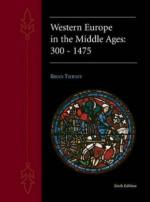|
This section contains 772 words (approx. 3 pages at 300 words per page) |

|
Theory and Practice Meet. One place at which medieval medical theory and practice came together was in the recommended regimina sanitatis, or "regimens of health," that learned physicians drew up for their wealthy patients. The central feature of most of these plans was the list of "six things non-natural" that the wise patient was told to regulate in order to keep in good health. These "non-naturals" were things that would today be called cultural or habitual aspects of daily life— as opposed to "natural" things, such as the pulse, over which one has little control, or wholly "unnatural" things, such as being wounded in battle. In most medical works the non-naturals that a patient should regulate were listed as
Exercise versus Rest
Sleep versus Awake
Fasting versus Feasting
Air (such as Fresh, Foul, or Stagnant)
Food and Drink
Mental States...
|
This section contains 772 words (approx. 3 pages at 300 words per page) |

|




